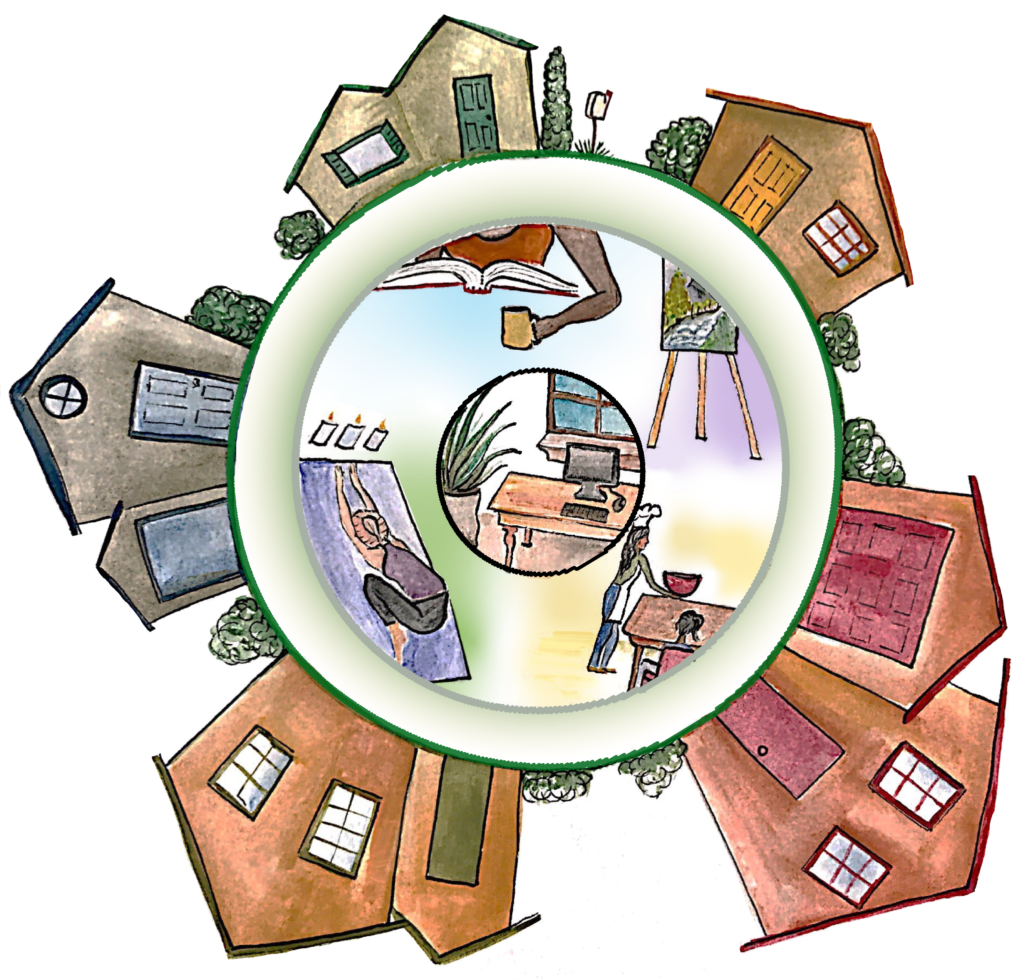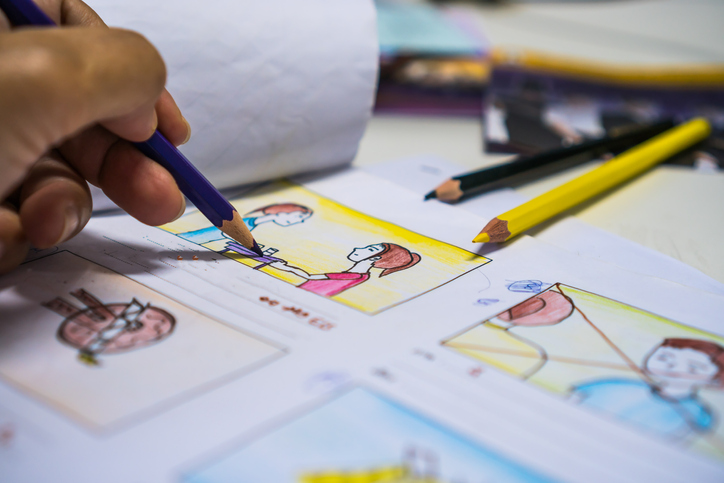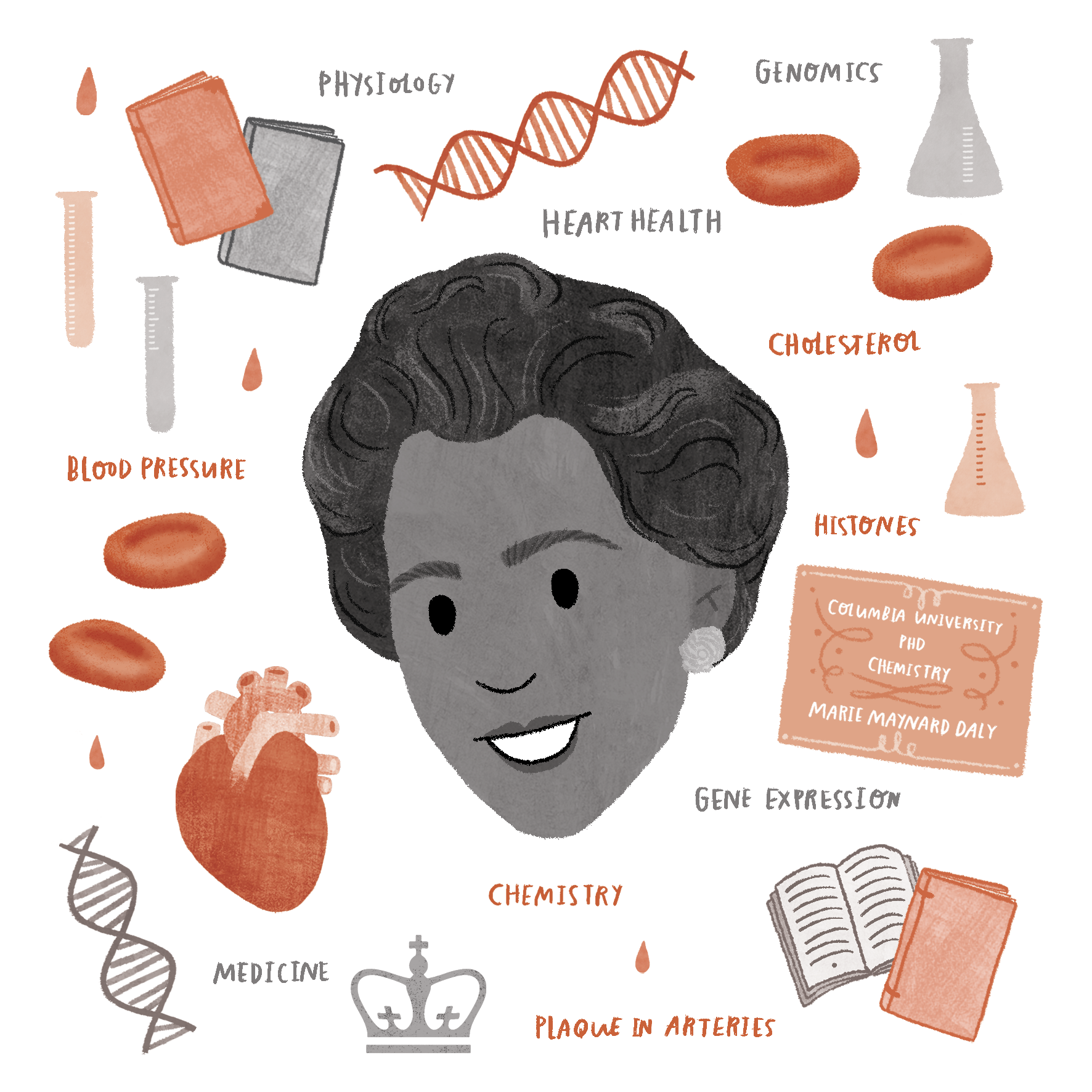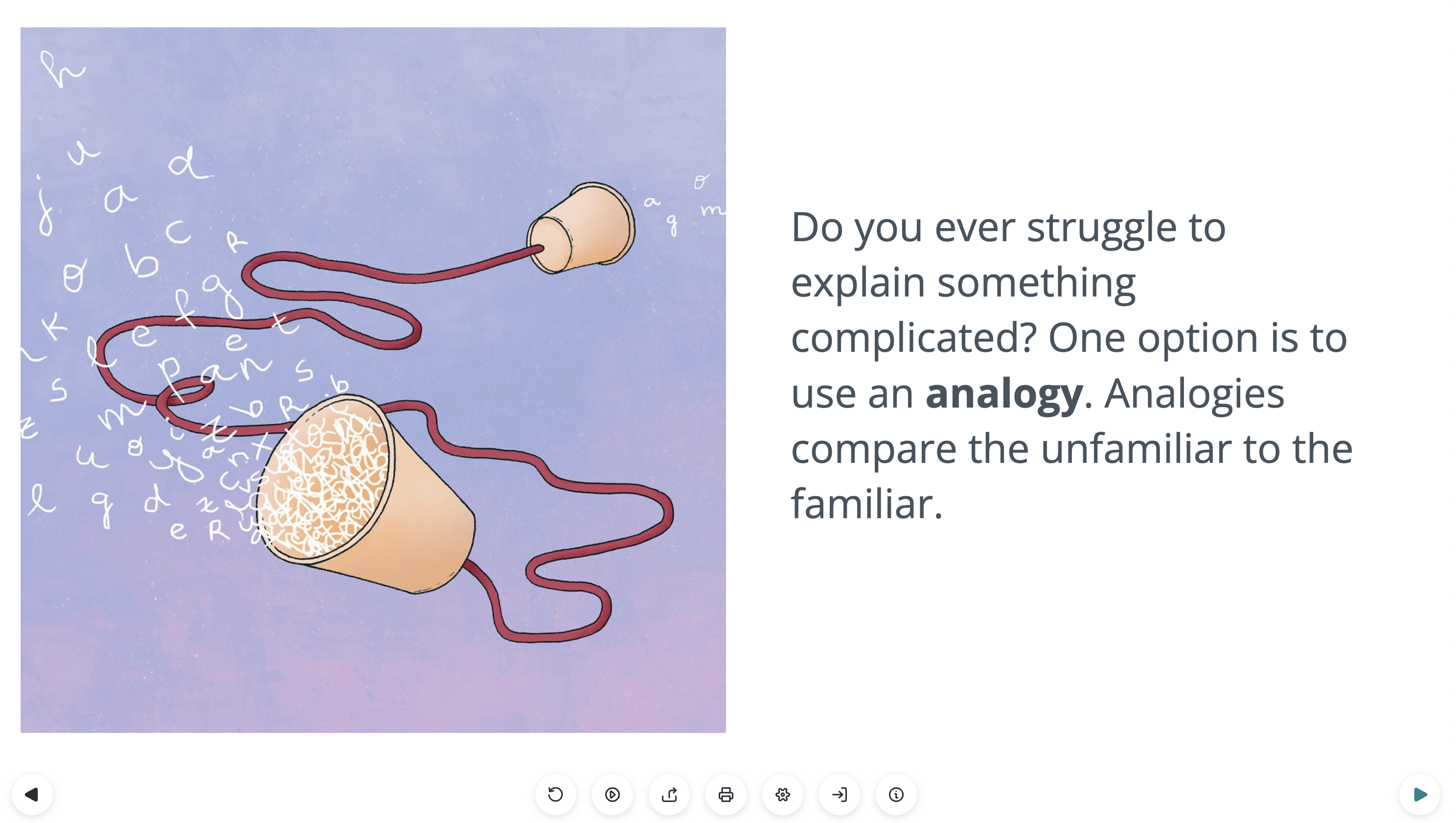
“We have control over our perspectives at this time, if not our circumstances.” Art by Rachel Doser.
During this COVID-19 pandemic, there are many factors that could lead to deteriorating mental health. People are critically ill and fighting for their lives, hospitals are past capacity and filled with worn-out health care professionals, millions of people around the world are physically isolated from one another – it’s hard. What makes it harder is not knowing when any of this will end, despite best efforts to model disease spread trajectories. With each passing day and no clear end in sight, this uncertainty can be taxing to our mental health.
Most people in society have had to completely change their lifestyle routine in just a matter of days, as the novel 2019 coronavirus hit their communities. Our online conversations have also changed. Instead of tweeting funny memes, we’re now tweeting exponential graphs. Instead of discussing our favourite TV shows, we’re now discussing the number of new cases of COVID-19. Not to mention the fact that the sheer breadth of information being produced during this time can be exhausting to keep up with.
And on top of all of this, the new routine of working from home and self-isolating has brought new levels of uncertainty that most would never have thought they would have to deal with. We’ve had to navigate a new “work” space, one that would typically be a place not for work but for leisure and relaxation (at least one can hope).
Understandably, this situation sounds dire, but there can be a silver lining. Finding it may require a perspective shift. This shift doesn’t naively negate the tremendous challenges or sadness of this situation; it acknowledges them and moves from there.
During crises, many people often downplay the importance of taking care of their mental health because it can seem selfish. Instead, they want to focus on helping their family and community. However, it’s easier to help others when we help ourselves first. Making mental health our priority is important. It can help us find positive change during this time and a perspective shift.
The silver lining of COVID-19 can be found at the societal and individual levels. But this post is meant to speak to those who need the reminder that taking care of your individual well-being is part of taking care of the well-being of others.
Social isolation can increase the rates of depression and anxiety in a given community [1]. I wrote this article to try to help you shift your outlook on aspects of your current reality in hopes that it may ease some of the challenges you face.
Here are three ways that you might find the silver lining of this situation:
Embrace the uncertainty
We all experience and live in normalcy bias, in which we tend to assume and expect that things will always be the way they’ve always been. In times of crisis (such as now), people often get debilitated because they are so mentally unprepared to make adjustments.
However, uncertainty is the norm. There are very few certainties in life and this pandemic is a reminder of that. One thing you can do amidst this uncertainty is to define what is certain and use that as your anchor.
This can be done at the day-to-day level; perhaps what’s certain today is that you will feed and take care of your children. It is certain that you will try to maintain social distancing to help minimize transmission of the virus.
The remainder of factors that you don’t have control over and that are thus are unpredictable should be acknowledged but do not necessarily need to be debilitating. Embracing the uncertainty forces us to focus on the things we can control and work towards. It doesn’t suggest that our lives are a game of dice totally up in the air, but it does help us remember that life doesn’t necessarily go as we plan it, and that doesn’t need to be a bad thing. Stepping into uncertainty is really the only way to gain wisdom and strength in all aspects of life.
Acknowledge the changes that can be beneficial
It’s normal to think about all the possibilities and things you would have been doing if we weren’t in this current situation. However, not all of the changes we’ve had to adjust to are bad – and many may lead to positive outcomes.
One thought-activity you can do is to think about all the changes you’ve had to make during this COVID-19 period and come up with one benefit or positive thing that has come from each of those changes. Perhaps working from home has meant that you’re able to spend more time with your kids or read more books. Perhaps working over-time at the hospital has allowed you to connect with more patients and become more empathetic. Perhaps spending less time with colleagues and friends has given you more time to self-reflect and work on your self-development goals.
This doesn’t mean that these changes are ideal or easy, but working on reinforcing gratitude can help your overall perspective of the situation and leave you with tangible benefits. Plus, there have been many studies which suggest an association between being gratitude and subjective well-being or happiness [2, 3].
Create self-isolation goals
Creating a set of specific self-isolation goals can be a helpful way to ease anxiety and take your focus away from all the pandemic-related information. These goals don’t have to be related to work (no one needs to work right now to be the next Pulitzer-prize winning author – although you certainly can be!). Instead, they can be goals that you have that have always been pushed to the back-burner.
Although many of us don’t necessarily have more free time right now, we may have more freedom in how we allocate our time, which may allow us to schedule in activities/hobbies/goals that we would normally brush over. Perhaps it’s doing science experiments with your children, pursuing more artistic projects (check out some online arts activities here), learning how to cook, or training for a marathon. Try to choose goals or hobbies that fulfill you and ease your mind. Perhaps by the end of this self-isolation period, you will have gained new skills or passions!
It’s also ok if you haven’t, and you focus instead of relaxing more and taking care of your mental health right now.
Self-isolation, especially as a result of a pandemic, is no doubt difficult, particularly for those who derive life-satisfaction from social gatherings. The increase in virtual meetings has been very helpful, but beyond that, it’s important to see this time for what it is – a transition period – and transitions provide the opportunity for reflection and change.
Finding the silver lining happens when we realize that perhaps we don’t have to put life on pause, but instead, we can press play on other things.
Featured artwork by Rachel Doser.
“Inspiration for the artwork came from combining two things. First, the various illustrations came from envisioning what implementing the blog post in my own life would look like. I have been turning to art, yoga, reading and cooking as outlets during this time. Secondly, I used Hajer’s idea of the “circle of influence’ schematic, which is meant to help you think about concerns in your life but identify which of these you have control over. I thought this really fit with a major takeaway from the blog post, being that we have control over our perspectives at this time, if not our circumstances. I also liked that the confinements of a circle is symbolic of the isolation many are currently living in.”
Try this
Write down some things you DO have control over. Then list out any positive changes that have occurred in your life because of this pandemic, even tiny. Make a comment on this blog post to share!
References
- Matthews et al. (2016). Social isolation, loneliness, and depression in young adulthood: a behavioural genetic analysis. Social Psychiatric and Psychiatric Epidemiology
- Sin & Lyubomirsky. (2009). Enhancing well-being and alleviating depressive symptoms with positive psychology interventions: a practice-friendly meta analysis. Journal of Clinical Psychology, 65(5)
- Dickens. (2017). Using Gratitude to Promote Positive Change: A series of Meta-Analyses Investigating the Effectiveness of Gratitude Interventions. Basic and Applied Social Psychology, 39(4)





